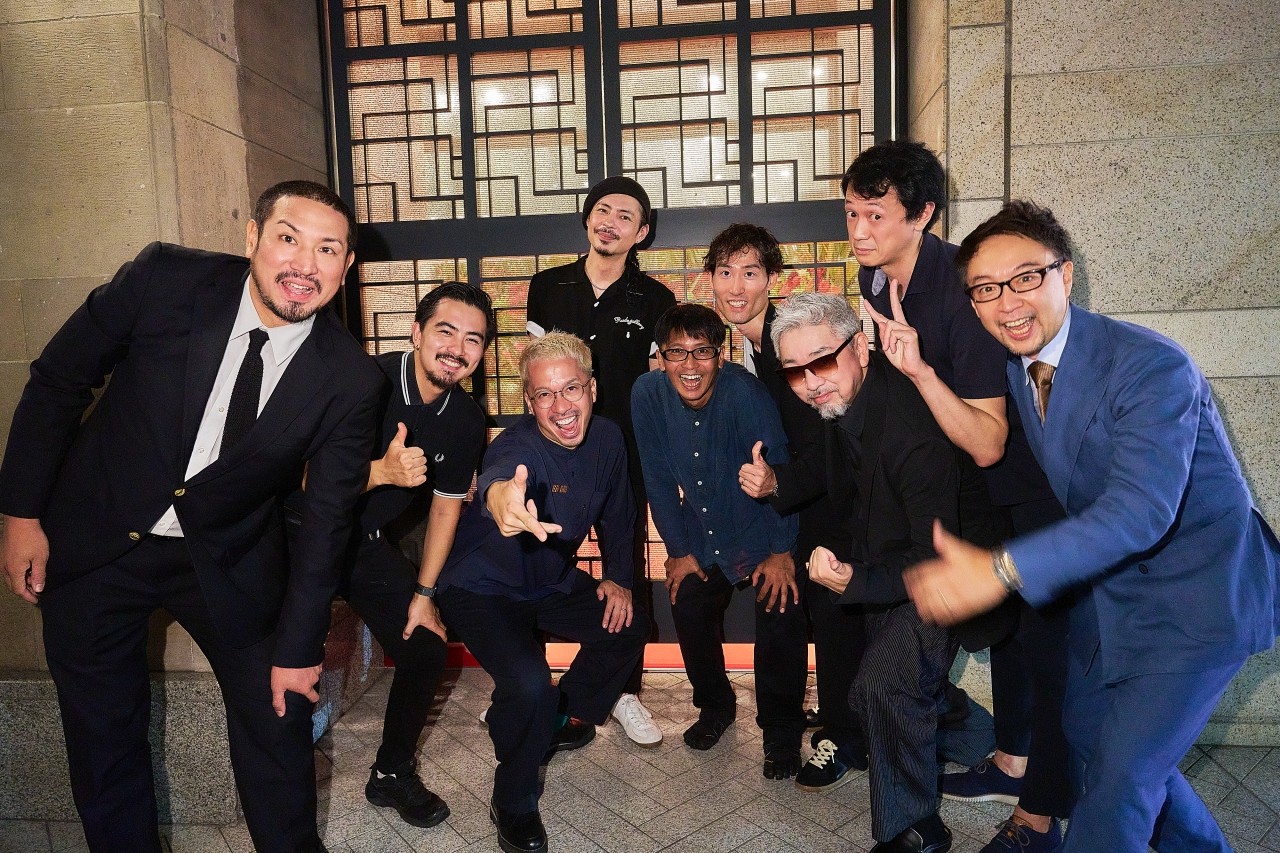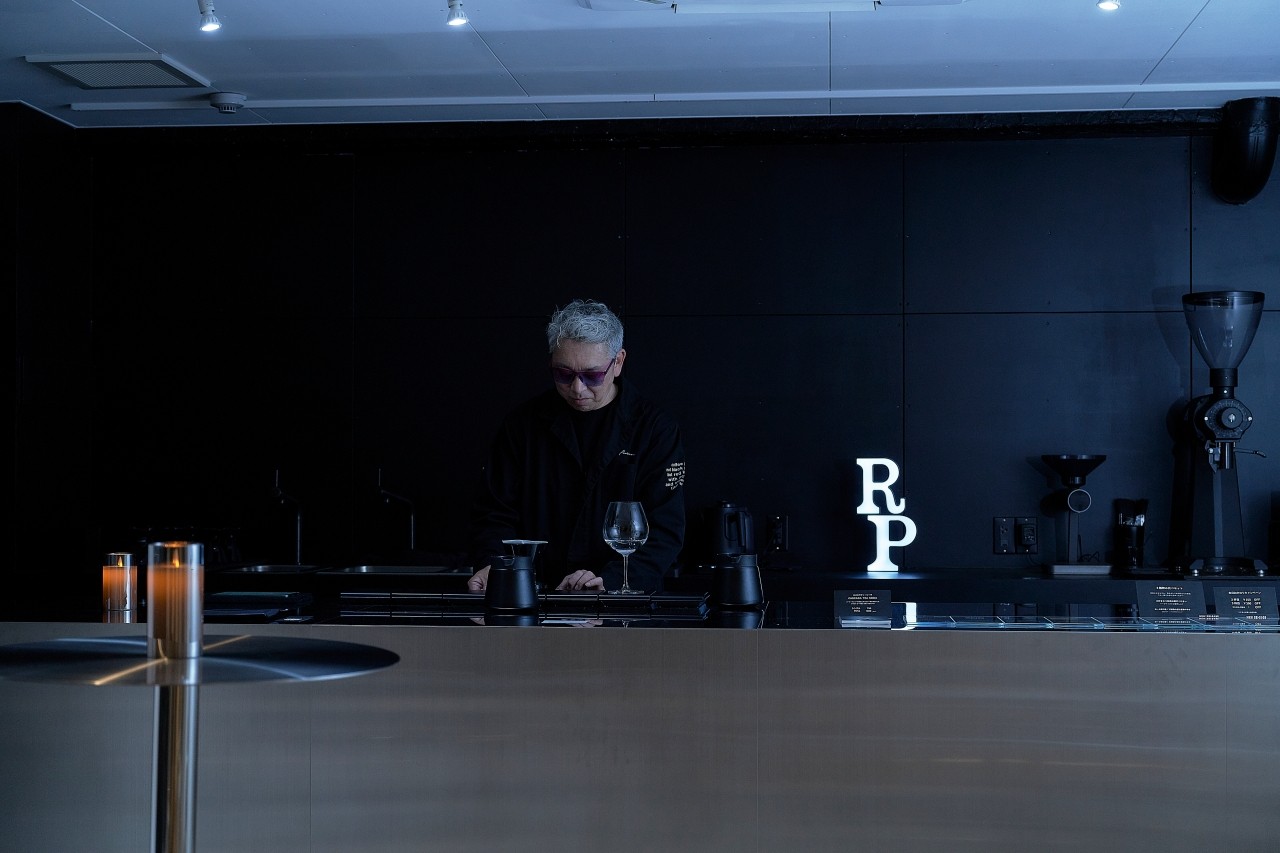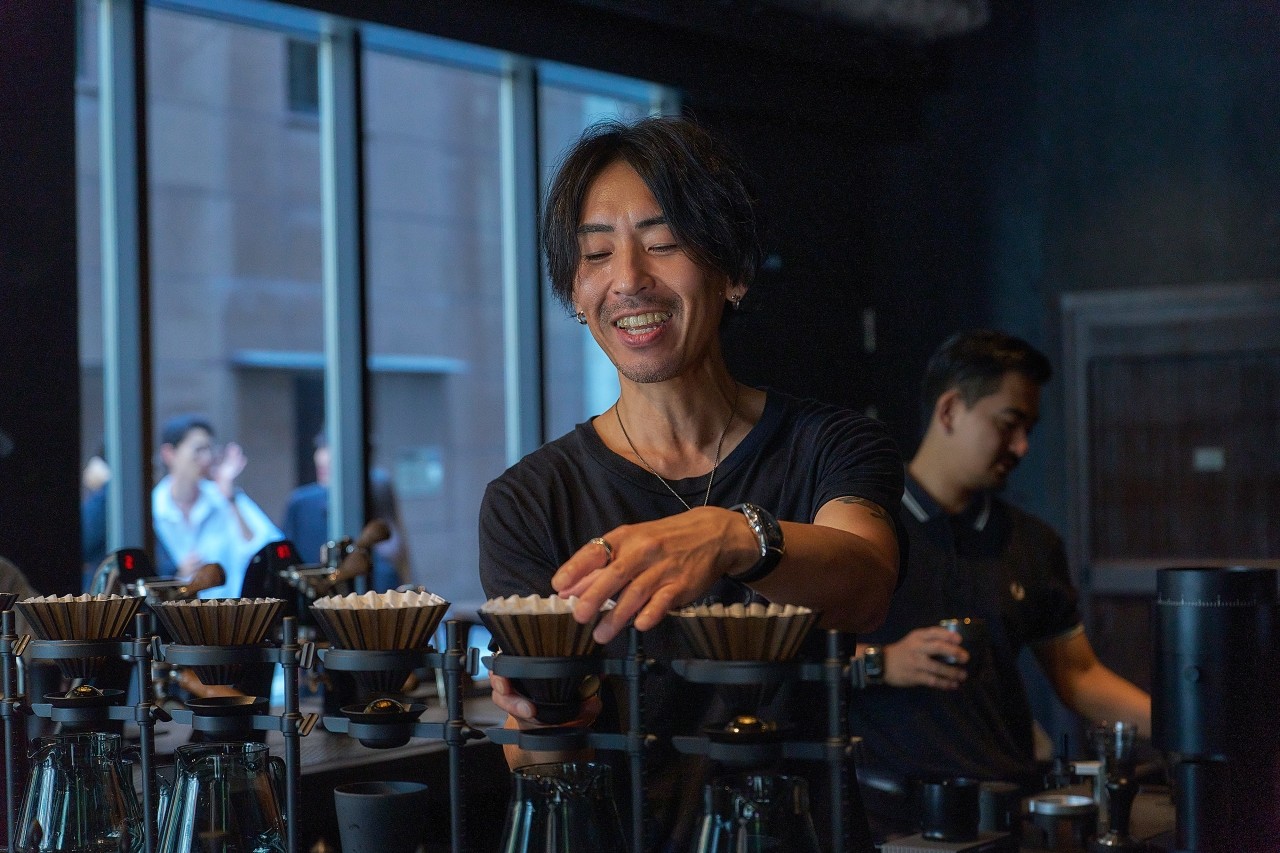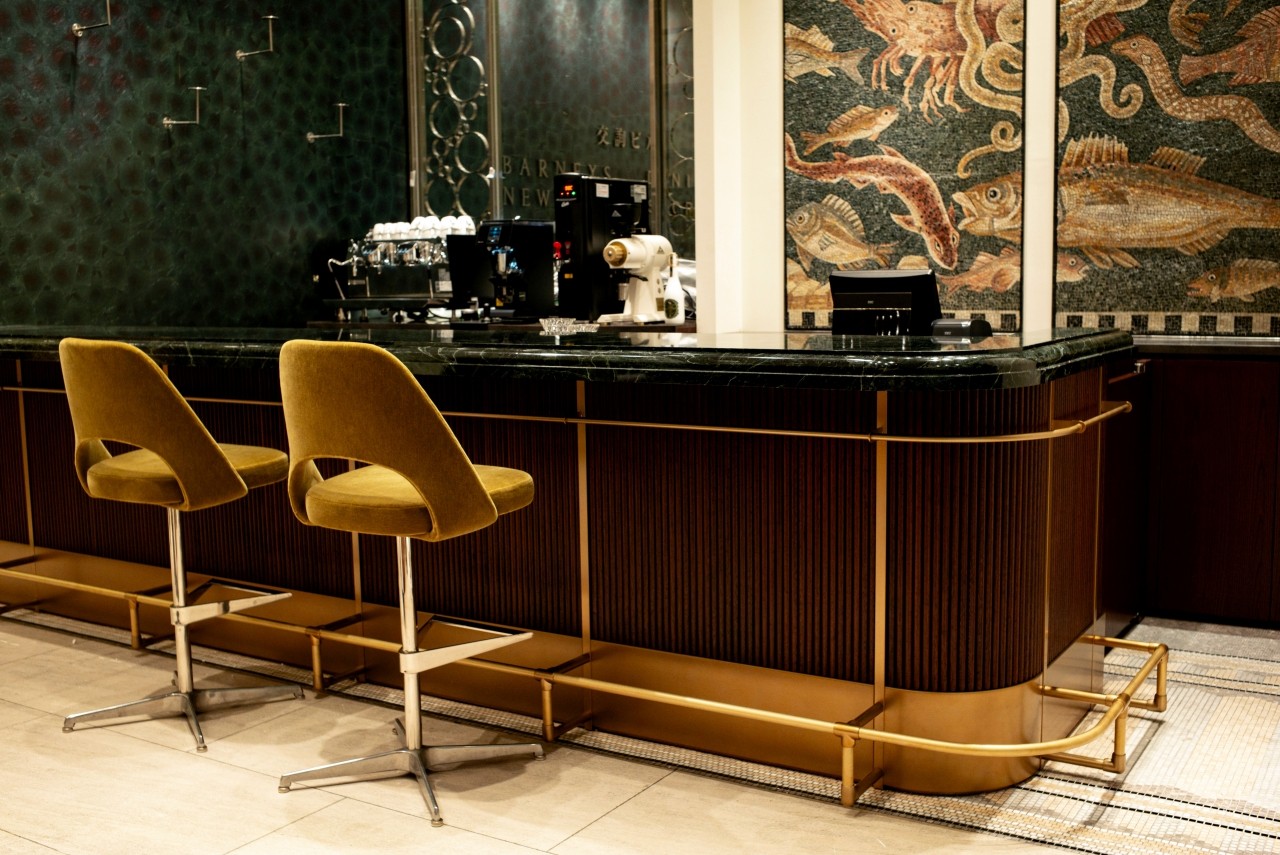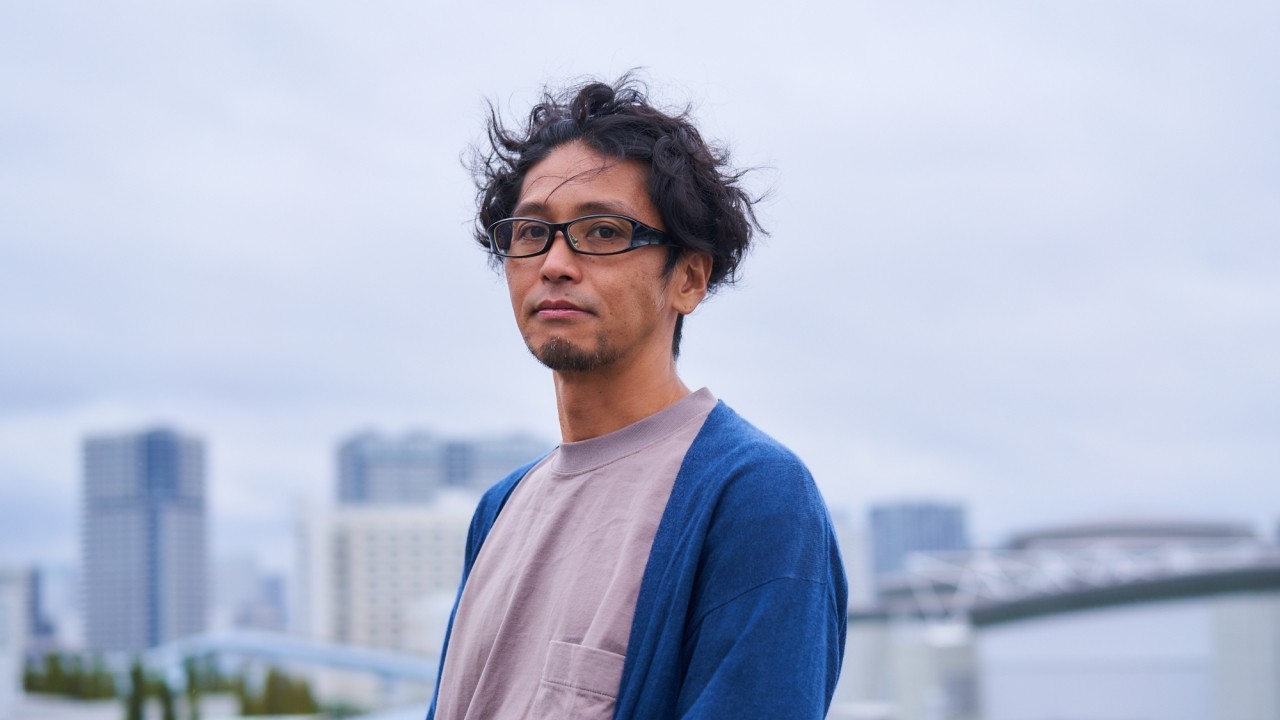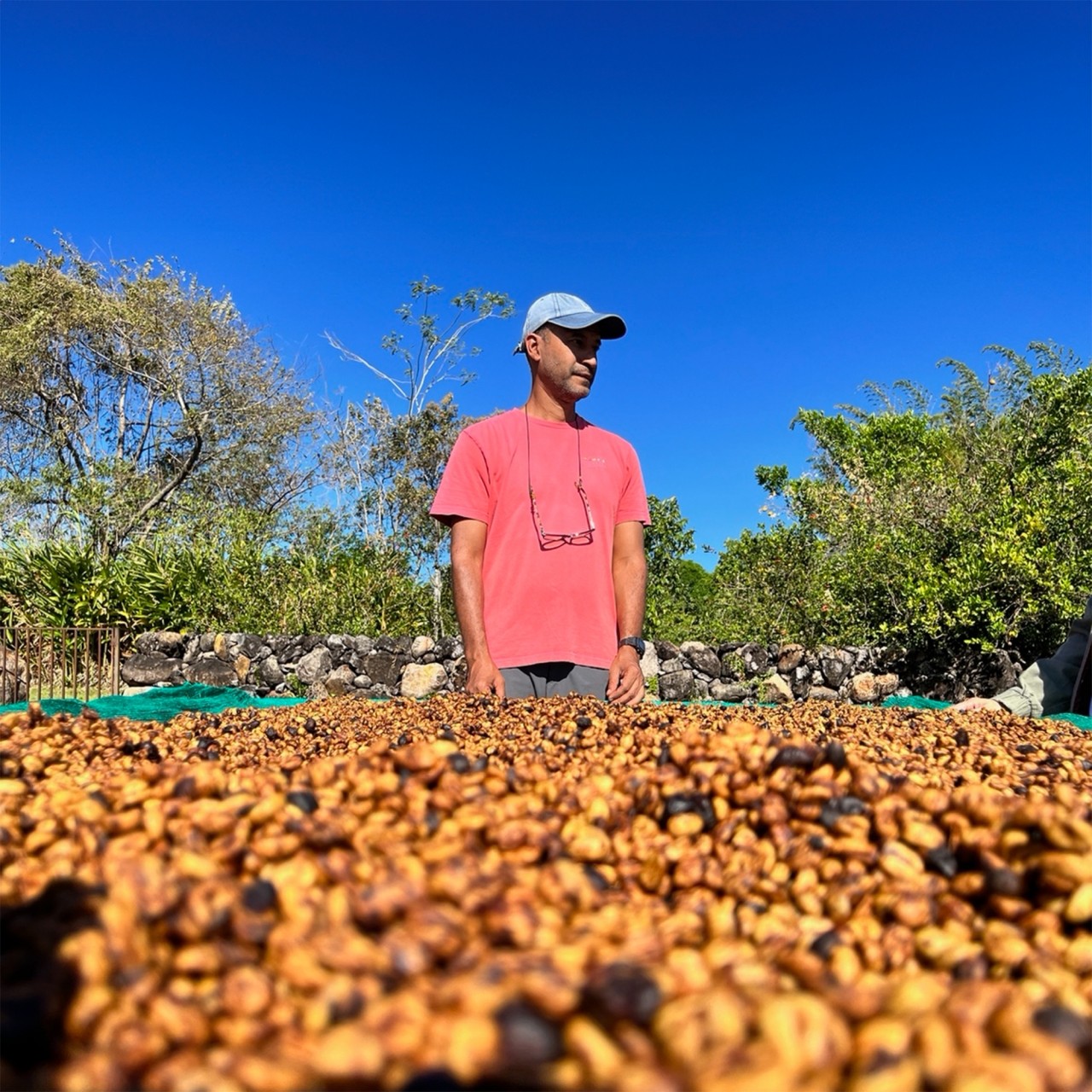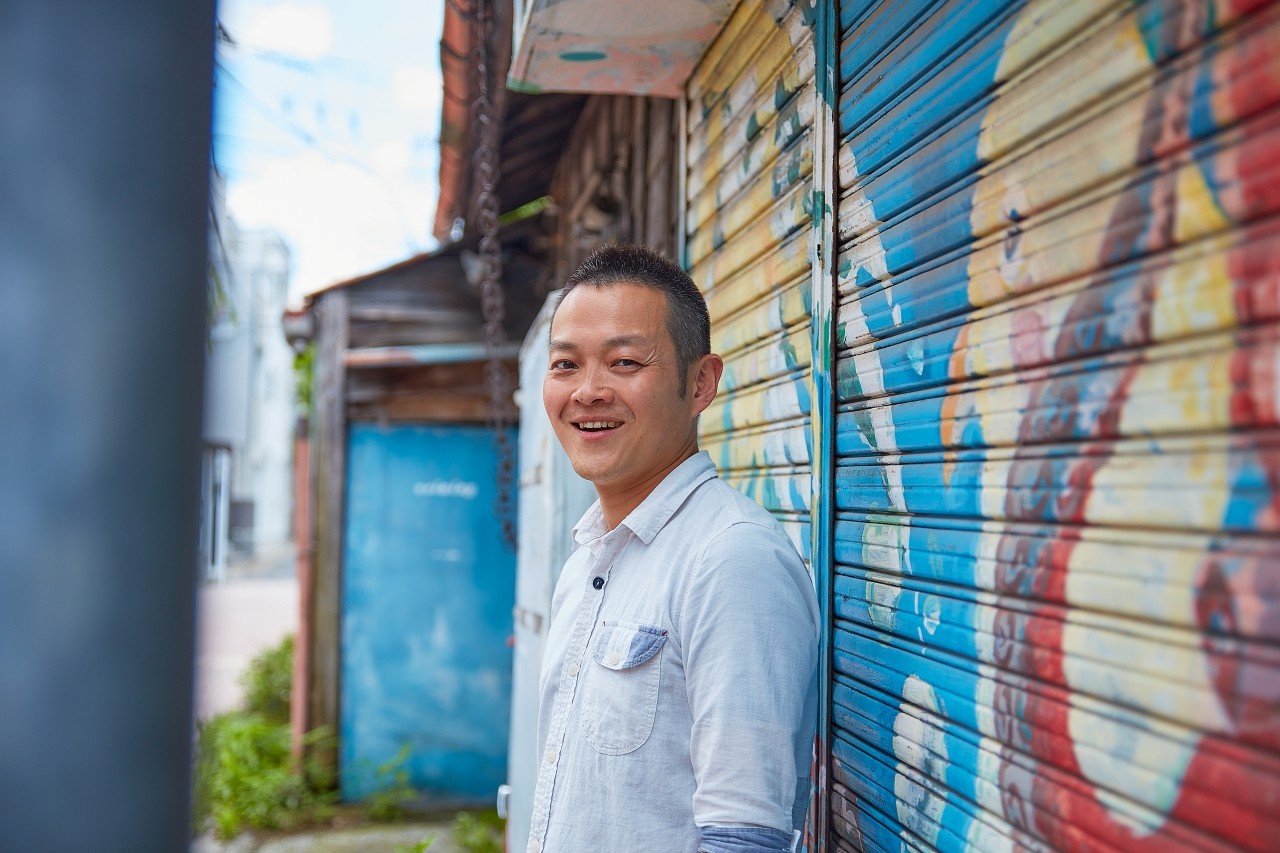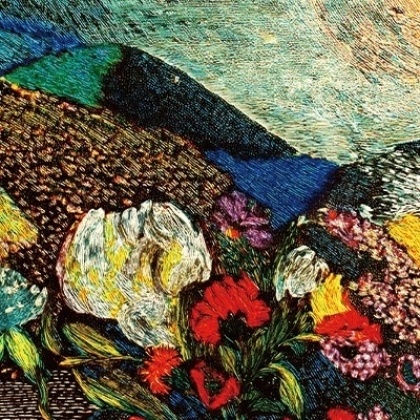[Last year's popular Kenyan crop has arrived] Kangocho's bright fruitiness

The new Kenyan crop " Kenya/Kangocho/ SL28 , SL34, Batian/Washed " has been added to the CROWD ROASTER app.
This coffee was released in limited quantities last year and was so popular that it was quickly sold out.
This product was very well received not only by users but also by the roasters who roast the coffee.
This year we have increased the quantity available.
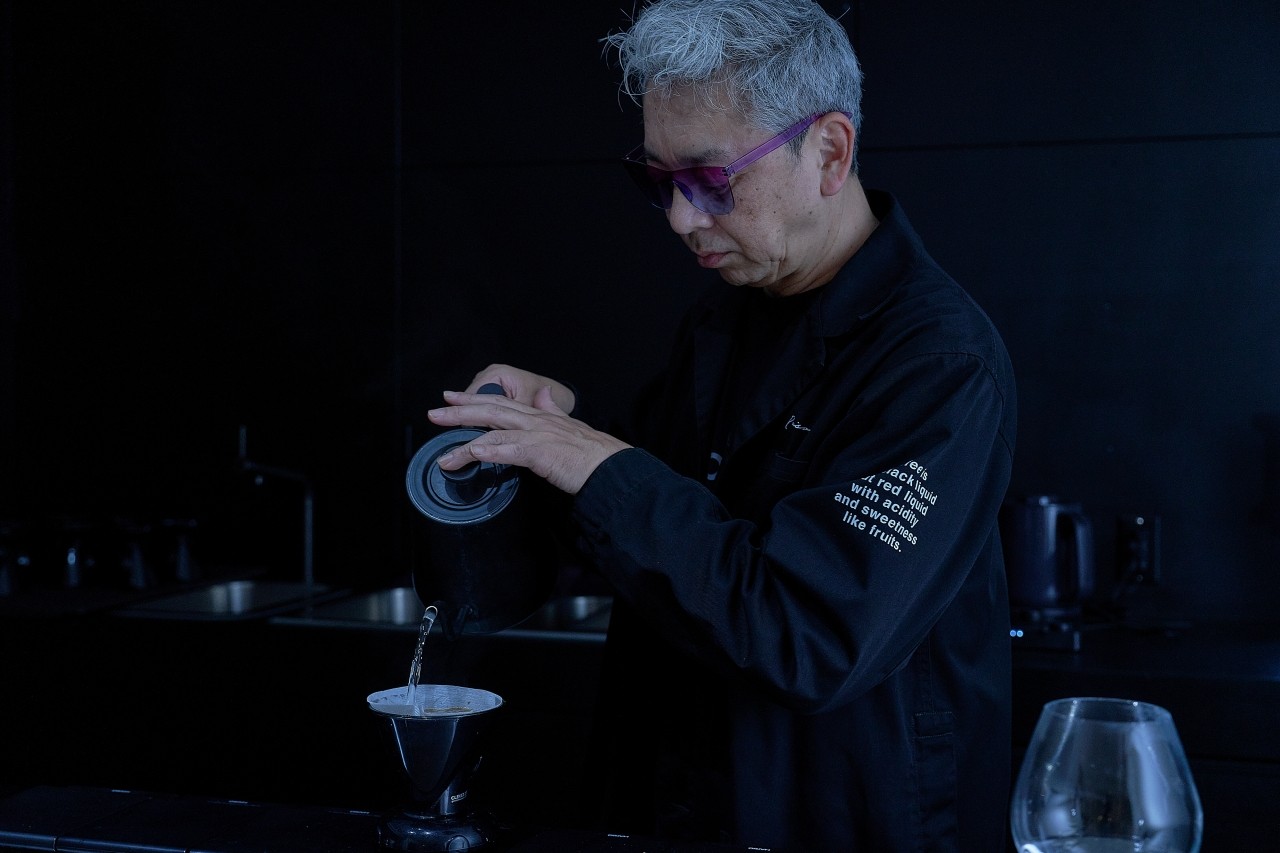
For this year's crop's first roast event, we once again asked REDPOISON Tomomichi Morifuji , who also took charge of last year's final roast event.
They roast the "sweet Kenya" coffee, which has become synonymous with Morifuji , bringing out the sweetness of Kenya.
Read this article and join us!
Juicy fruit and bright acidity bursting with flavor
Kenya Kangocho features bright fruity notes reminiscent of orange and yellow peach, and a juicy acidity. The syrupy texture and cocoa-like sweetness combine to create a clean yet powerful drink.
The clear taste, refined through the full-wash process, allows you to fully experience the charm of Kenyan coffee.
The clear taste, refined through the full-wash process, allows you to fully experience the charm of Kenyan coffee.
Nyeri County, the mecca of specialty coffee that is attracting attention from around the world
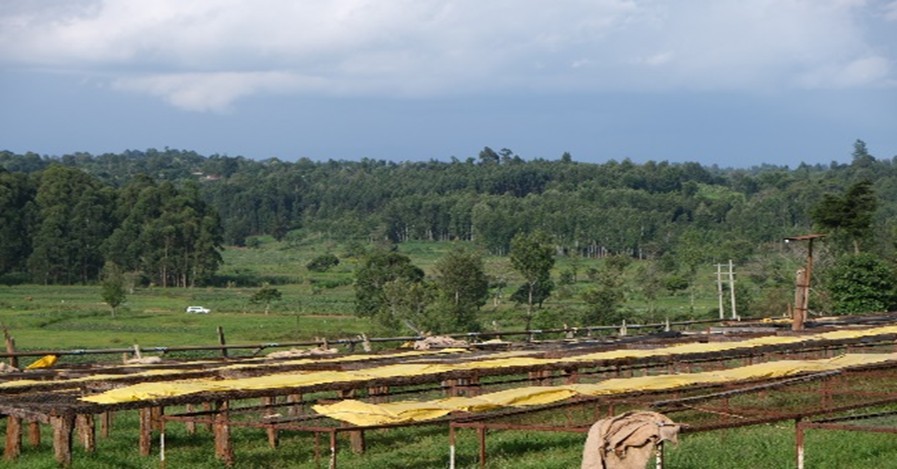
Nyeri County, where the Kangocho Factory is located, is located in Kenya's Central Province and is a coffee-producing region that stretches across the southwestern slopes of Mount Kenya. The highlands, at an altitude of 1,600-1,800 meters, experience large temperature differences between day and night, and receive abundant rainfall during two rainy seasons per year.
The greatest feature of Nyeri County is its fertile red volcanic soil. Rich in minerals and well-drained, it creates an ideal environment for growing coffee. This soil gives Nyeri coffee its unique concentrated fruity flavor reminiscent of red and purple fruits such as blackcurrant and raspberry, as well as its robust body and rich, refined acidity.
Nyeri County is a place where coffee buyers from all over the world flock in search of high-quality specialty coffee. It is particularly highly regarded within Kenya, and due to its high quality, it has become scarce in recent years, causing prices to soar.
The greatest feature of Nyeri County is its fertile red volcanic soil. Rich in minerals and well-drained, it creates an ideal environment for growing coffee. This soil gives Nyeri coffee its unique concentrated fruity flavor reminiscent of red and purple fruits such as blackcurrant and raspberry, as well as its robust body and rich, refined acidity.
Nyeri County is a place where coffee buyers from all over the world flock in search of high-quality specialty coffee. It is particularly highly regarded within Kenya, and due to its high quality, it has become scarce in recent years, causing prices to soar.
Over 1,000 small producers and the Gikanda Agricultural Cooperative
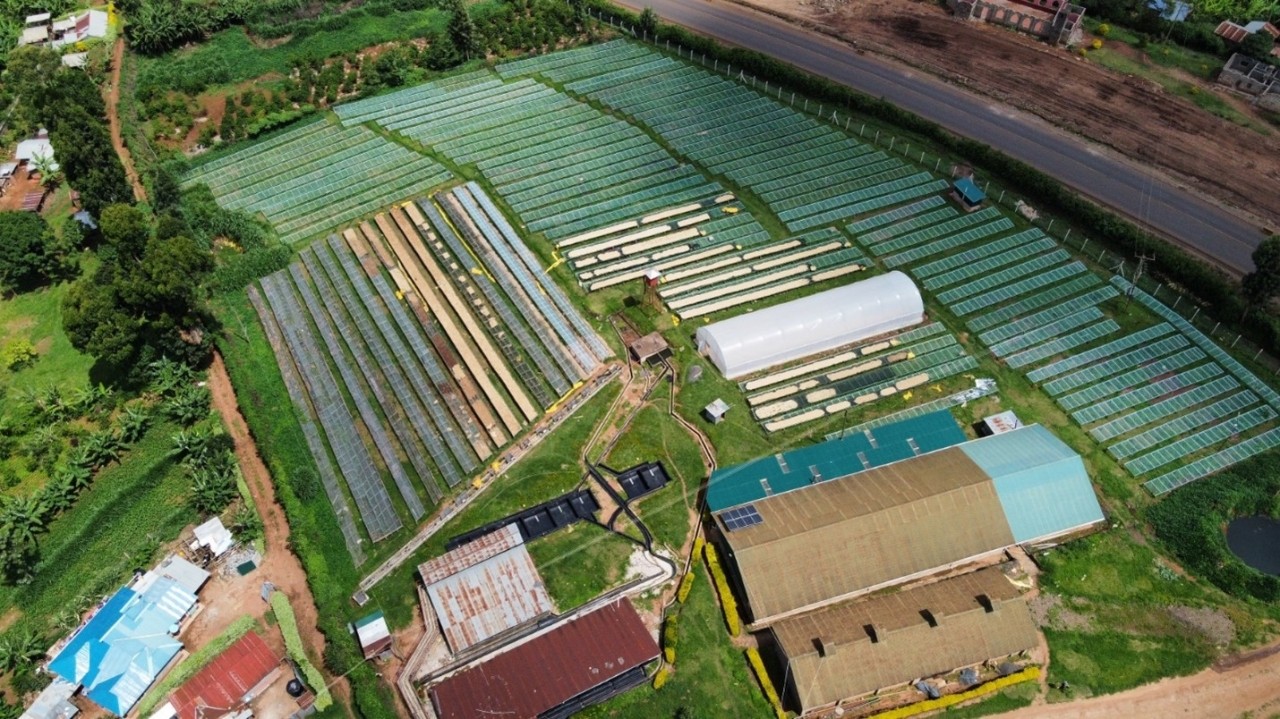
This Kangocho is made from coffee cherries grown by 1,322 farmers who carefully cultivate coffee around the Kangocho Factory.
Coffee production in Kenya, like in other African countries such as Ethiopia, is dominated by small-scale producers. Many producers cultivate anywhere from a few to several hundred coffee trees around their homes, and bring the harvested coffee cherries to a nearby processing facility known as a "factory."
Factories are run by Farmer's Co-operative Societies (FCS). Typically, around 300 to 500 producer households are associated with one factory, and an agricultural cooperative that oversees multiple factories has around 3,000 registered producer households.
The Gikanda Agricultural Cooperative, which operates the Kangocho Factory, was established in 1996 and currently has over 3,000 members. The cooperative owns three factories: Kangocho, Gichasaini, and Ndaroini, and Kangocho Factory is home to 1,322 producers, or just over one-third of the cooperative's members.
In Kenya, it is common for coffee lots to be named after the factories owned by these agricultural cooperatives. Because there are so many producers, it is difficult to create lots from a single farm, as is the case in Central and South America, so coffee is distributed on a factory-by-factory basis.
Kenyan Full Washed Process

At Kangocho Factory, we carry out thorough quality control on the coffee cherries brought in.
The fully washed process, commonly used in Kenya, is unique in that it involves selecting only the most ripe cherries, removing the pulp, and then allowing the cherries to dry ferment for 12 hours.
After fermentation, the beans are washed in a water channel and then gravity sorted. At this point, a unique Kenyan process called "soaking" is added. Soaking involves soaking the parchment-like coffee beans in clean water for 12 to 72 hours. This process completely removes any unwanted residue and evens out the moisture content of the beans. The result is the bright acidity and clear, clean flavor that are unique to Kenyan coffee.
Finally, the beans are sun-dried for 14 days on well-ventilated drying racks called African beds. By drying them on raised beds rather than directly on the ground, we are able to prevent the introduction of foreign matter and bacterial contamination from the soil, and ensure uniform drying.
The lot number for this batch, 13GF0002, means it was the second batch to be finished at Gicanda Farmers Mill, in the 13th week of the crop year starting in October.
Achieves AA grade quality
This coffee is classified as AA standard. In Kenya, coffee beans are graded by screen size (bean size), and AA refers to large beans of 6.8mm or larger (screen 17/18).
AA grade coffee tends to be full-bodied and full-bodied, with rich and complex flavors. It is highly regarded around the world as the grade that allows you to enjoy the best of Kenyan coffee.
AA grade coffee tends to be full-bodied and full-bodied, with rich and complex flavors. It is highly regarded around the world as the grade that allows you to enjoy the best of Kenyan coffee.
The unique characteristics of Kenya's representative varieties
The three varieties used in this coffee are SL28 , SL34 and Batian.
SL28 and SL34 were developed in the 1930s at the Scott Agricultural Laboratories in Kenya, and the "SL" comes from the name of the laboratory.
SL28 is a drought-tolerant variety suited to highland cultivation, characterized by bright acidity and a fruity aroma of citrus and berries. With a complex flavor profile, it is synonymous with Kenyan coffee and is still the most widely grown variety in Kenya today.
SL34 is a variety that has been improved to adapt to humid environments and is characterized by its rich body and sweetness. It has large berries, and when combined with SL28 , it creates a balanced and complex flavor.
These two varieties have been cultivated in Kenya for nearly 90 years, and it is said that 80% of the coffee exported from Kenya today is the SL series.
On the other hand, Batian is a relatively new variety developed by the Kenya Coffee Research Institute in 2010. Its name comes from Batian Peak, the highest point on Mount Kenya.
Batian, a cross between several premium varieties including SL28 and SL34, is highly resistant to pests and diseases and can be grown in a variety of environments. Furthermore, while it is early-ripening, able to be harvested two years after planting, its fruity, sweet flavor is rated as having cup quality equal to or even better than SL28 and SL34.
Batian combines the excellent flavor of traditional varieties with the practicality to meet modern cultivation needs, making it a promising variety for the future of Kenyan coffee.
SL28 and SL34 were developed in the 1930s at the Scott Agricultural Laboratories in Kenya, and the "SL" comes from the name of the laboratory.
SL28 is a drought-tolerant variety suited to highland cultivation, characterized by bright acidity and a fruity aroma of citrus and berries. With a complex flavor profile, it is synonymous with Kenyan coffee and is still the most widely grown variety in Kenya today.
SL34 is a variety that has been improved to adapt to humid environments and is characterized by its rich body and sweetness. It has large berries, and when combined with SL28 , it creates a balanced and complex flavor.
These two varieties have been cultivated in Kenya for nearly 90 years, and it is said that 80% of the coffee exported from Kenya today is the SL series.
On the other hand, Batian is a relatively new variety developed by the Kenya Coffee Research Institute in 2010. Its name comes from Batian Peak, the highest point on Mount Kenya.
Batian, a cross between several premium varieties including SL28 and SL34, is highly resistant to pests and diseases and can be grown in a variety of environments. Furthermore, while it is early-ripening, able to be harvested two years after planting, its fruity, sweet flavor is rated as having cup quality equal to or even better than SL28 and SL34.
Batian combines the excellent flavor of traditional varieties with the practicality to meet modern cultivation needs, making it a promising variety for the future of Kenyan coffee.
Committed to sustainable coffee production
Gikanda Agricultural Cooperative is Rainforest Alliance Certified (RA Certified) and Fairtrade Certified (FLO Certified), and conducts sustainable production activities. Their commitment to environmental conservation and improving the lives of producers sets a new standard for Kenyan coffee, achieving both high-quality coffee production and sustainability.
With bright fruitiness, juicy acidity, and a clean finish, Kangocho is a cup that allows you to taste Shin of Kenyan coffee, born from the excellent terroir of Nyeri County, the careful cultivation of small-scale producers, and strict quality control.
With bright fruitiness, juicy acidity, and a clean finish, Kangocho is a cup that allows you to taste Shin of Kenyan coffee, born from the excellent terroir of Nyeri County, the careful cultivation of small-scale producers, and strict quality control.
For the time being, this brand will only be available at roast events.
Be sure to check out Morifuji 's roast event on the app.
If you want to enjoy coffee more deeply
" CROWD ROASTER APP"
Manabu at CROWD ROASTER LOUNGE
・Push notifications for article updates・Full of original articles exclusive to CROWD ROASTER
・Direct links to detailed information about green beans and roasters
App-only features
- Choose green beans and roasters to create and participate in roasting events・CROWD ROASTER SHOP: Everything from beans to equipment is readily available
・GPS-linked coffee map function


